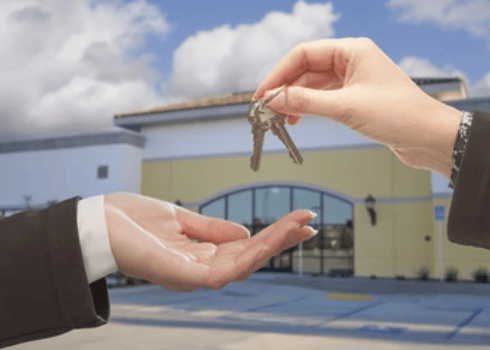When investing in property, you might encounter the term “Florida Real Estate Wholesalers” quite often. But what exactly does it mean, and how does it influence the real estate market in Florida? Florida Real Estate Wholesalers play a pivotal role in buying and selling properties, acting as intermediaries who identify lucrative deals and connect sellers with potential buyers. In this deep dive, we’ll uncover the defining features of their operations, shedding light on their significance and the benefits they offer to different stakeholders in the real estate industry.
Prominent real estate investors like Steve Daria and Joleigh have successfully navigated the market with the aid of Florida Real Estate Wholesalers. By leveraging the expertise of these wholesalers, Steve and Joleigh have been able to identify and secure profitable properties. Their collaboration highlights the value that wholesalers bring to investors looking to maximize their returns in Florida’s dynamic real estate market.
The Anatomy of a Florida Real Estate Wholesalers
To the uninitiated, a real estate wholesaler can appear somewhat enigmatic, operating primarily behind the scenes.
At its core, wholesaling involves facilitating the sale of a property without actually taking ownership of it.
This often involves finding deeply discounted properties, entering into a purchase contract, and promptly selling that ‘right to purchase’ to another investor.
Essentially, wholesalers act as intermediaries, like matchmakers, connecting sellers and buyers.

How Do Wholesalers Fit Into the Real Estate Ecosystem in Florida?
Real estate in Florida can be a goldmine, with its varied market behavior, high-luxury segment potential, and consistent demand.
Florida real estate wholesalers capitalize on this volatile market by providing a service that minimizes buyers’ and sellers’ work.
They find motivated sellers, negotiate the deal, and transfer that potential to new investors.
Crafting the Strategic Mindset: How Florida Real Estate Wholesalers Find Deals
Finding deals is the most pivotal skill in a real estate wholesaler’s arsenal.
It is exciting yet challenging in a state known for its competitive market.
Marketing Maven or Deal Diver?
Wholesalers employ a varied approach to find their gems.
From making direct cold calls and using direct mail to harnessing the potential of digital marketing and networking, they are relentless.
The approach needs to be agile and adaptable in Florida, where the market includes diverse property types and seller motivations (from retirees to developers).
The Power of Negotiation
Once a wholesaler locates a potential deal, their ability to negotiate effectively sets them apart.
In some ways, they act as crisis managers for distressed sellers, offering timely solutions that, while bearing a discount for buyers, can mean a world of difference for the seller.
Get An Offer Today, Sell In A Matter Of Days
Legal Landscape: Ethical and Legal Hazards of Wholesaling in Florida
The scheme of wholesaling has its pitfalls.
In Florida, real estate law is particularly stringent, with unique requirements and regulations.
The Importance of Relationships
Creating a robust network of legal professionals, real estate agents, and investors is critical.
This ensures wholesalers are informed about legal boundaries and can conduct their business ethically and within the confines of the law.
Transparency Is Nonnegotiable
Wholesalers must be transparent with sellers, ensuring they understand the process and mitigating any misconceptions that could lead to lawsuits.
Employing legal counsel during the formation of contracts and transactions adds an extra layer of protection for both parties.
The Shifting Market Dynamics in Florida Real Estate Wholesaling
The Florida real estate market is repeatedly changing.
How do Florida real estate wholesalers adapt to this dynamic environment?
External Factors and Economic Indicators
Wholesalers need to be adept at reading market trends and economic indicators.
Tourism numbers, hurricane seasons, and interest rates can mainly influence Florida’s market.
Staying Agile
Agility is critical, whether swiftly adapting to digital marketing trends, adjusting strategies due to a sudden surge in interest, or understanding how to position a deal in a softening market.
The Future of Wholesaling in Florida Real Estate
Looking ahead, how will wholesaling evolve in Florida’s real estate market?
Innovation and Technology
Technology is already reshaping the industry, from AI-assisted deal finding to virtual property tours.
Wholesalers who can harness these innovations will remain competitive.
Adapting to Regulatory Changes
Staying ahead of the regulatory curve with evolving real estate laws will be essential and may lead to a more standardized, transparent industry.
Leveraging Wholesalers to Your Advantage in Florida Real Estate
Understanding how to work with wholesalers can be a game-changer for those looking to sell, buy, or invest in the Florida property market.
Sellers’ Toolkit
A wholesaler may be your best bet if you’re a seller seeking a quick and hassle-free transaction.
Matching your requirements with a wholesaler’s proficiency can streamline the sales process and ensure a mutually beneficial agreement.

Investors’ Blueprint
For investors, wholesalers can offer a treasure trove of opportunities, often with less competition and more room for negotiation than traditional listings.
Wholesalers in the Neighborhood
Even if you’re not directly involved in a transaction, the presence of wholesalers can indicate market trends and opportunities in your local real estate scene.
Conclusion
Real estate wholesalers in Florida are more than mere middlemen. They are savvy business people, adept deal finders, and pivotal players in the Florida property market’s dynamic dance. By understanding their role and significance, you can unlock a fresh perspective on selling, buying, and investing in real estate, ultimately empowering you with insights that could make all the difference in your next Florida property endeavor.
**NOTICE: Please note that the content presented in this post is intended solely for informational and educational purposes. It should not be construed as legal or financial advice or relied upon as a replacement for consultation with a qualified attorney or CPA. For specific guidance on legal or financial matters, readers are encouraged to seek professional assistance from an attorney, CPA, or other appropriate professional regarding the subject matter.

